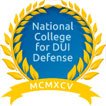Your Questions About White-Collar Crimes Answered
White-collar crimes are generally considered non-violent criminal acts that are driven by financial motives. Examples of white-collar crimes include fraud, bribery, embezzlement, money laundering, and identity theft. Although they do not involve violence, these “paper crimes,” as they are sometimes called, are not without victims. Prosecutors take white-collar crimes very seriously, and anyone convicted can face harsh prison sentences and heavy financial penalties.
If you or a loved one is being investigated or has been charged with a white-collar crime, you need a seasoned criminal defense lawyer on your side. Contact the Law Office of Joel M. Mann to schedule a free and confidential consultation on the details of your case. Below are some of the most commonly asked questions about white-collar crime.
How is white-collar crime investigated?
White-collar crime cases are investigated and handled differently from other types of criminal cases. These cases begin with an investigation into suspected illegal activity, rather than an immediate arrest. Suspicions may come from a tip or through other information that sheds light on potential signs of illegal actions by a company or an individual.
As part of the investigation, law enforcement and prosecutors may try to get a wiretap or a search warrant to gather evidence. They may subpoena documents and demand access to communications, such as email. Ultimately, they want to gather as much evidence as possible to craft a case for conviction.
As part of the investigative process, prosecutors may use a grand jury to gather evidence. A grand jury consists of 16 to 23 people who are advised by the prosecutor to review evidence and hear testimony from witnesses. Ultimately, the grand jury determines if there is enough evidence to charge a person with a crime.
In many cases, a person may not know they are under investigation or they may not understand the scope of the investigation until they are actually arrested. It is crucial that if you suspect you are being investigated for a white-collar crime, you should speak with an experienced defense attorney as soon as possible.
How are white-collar crimes punished?
White-collar crimes are typically Category B or Category C felonies. Convictions on these felony charges can result in 1 to 20 years in prison and fines of up to $100,000. In addition, a defendant can be ordered to pay restitution and attorneys’ fees, as well as the costs to repair the credit of victims in cases of identity theft.
Because many types of white-collar crimes span state lines, these cases are usually prosecuted in federal court. Federal prosecutors take these cases very seriously and will push for maximum sentences upon conviction.
A felony conviction on your record will haunt you for many years to come, affecting employment and options for housing. If you are accused of a white-collar crime, you should act quickly to get an attorney on your side who understands the complexities of these cases and has the knowledge and resources to fight the charges.
How does the prosecutor decide which cases to pursue?
Prosecutors have the power to determine whether to pursue a case. This is known as “prosecutorial discretion.” When evaluating a potential case, prosecutors will look at all the evidence to decide whether they believe there is enough to convict. They will also try to identify whether any violations of policy or procedure have been made, such as a violation of a defendant’s rights, that could lead to a case being thrown out.
Ultimately, prosecutors want to pursue cases that they believe they can win. This is why it is important to have a strong white-collar defense attorney on your team from the start. Your attorney can begin identifying problems with the prosecution’s case early on, fighting the case against you even before charges can be brought.
What is restitution?
A defendant may be ordered to pay restitution, or a sum of money, to compensate victims for financial losses that resulted from the crime. These losses are often documented as part of the case against the defendant. However, victims may also submit a Victim Loss Statement to detail their losses.
The federal Mandatory Victims’ Restitution Act of 1996 outlines the procedures for determining restitution. In addition, state and federal laws may require an offender to pay restitution to the victim. The court will order restitution at sentencing.
What is burden of proof?
In a criminal case, the prosecution must be able to prove “beyond a reasonable doubt” that the defendant is guilty. This is a high bar, and there are many opportunities for an experienced criminal defense attorney to demonstrate reasonable doubt and uncover other problems in the prosecution’s case.
Talk to an Experienced White-Collar Criminal Defense Lawyer Now
Learning that you are under investigation and may be charged with a crime can be extremely nerve-racking. Many times, people who are under investigation do not know the extent of what is being investigated or whether they need a lawyer. They may think that if they have not been arrested, they do not need legal representation. Do not make this mistake.
If you suspect you are under investigation, you should definitely consult with a criminal defense attorney who has extensive experience in white-collar cases. A seasoned attorney can evaluate the circumstances and advise you on what is in your best interests. Your attorney can speak with the prosecution and help you understand what exactly is happening.
At the Law Office of Joel M. Mann, we have extensive experience successfully defending a range of white-collar criminal cases, including:
- Money laundering
- Racketeering Influenced and Corrupt Organization Act (RICO)
- Credit card fraud
- Wire and mail fraud
- Bribery
- Forgery
- Embezzlement
- Identity theft
- Computer crimes
- Health care fraud
- Mortgage fraud
We know how severely a conviction on these charges can impact an individual and his or her family. Attorney Joel M. Mann fights tirelessly to protect his clients every step of the way. Call us or contact us online now to schedule a free consultation and learn how we can help you.

















